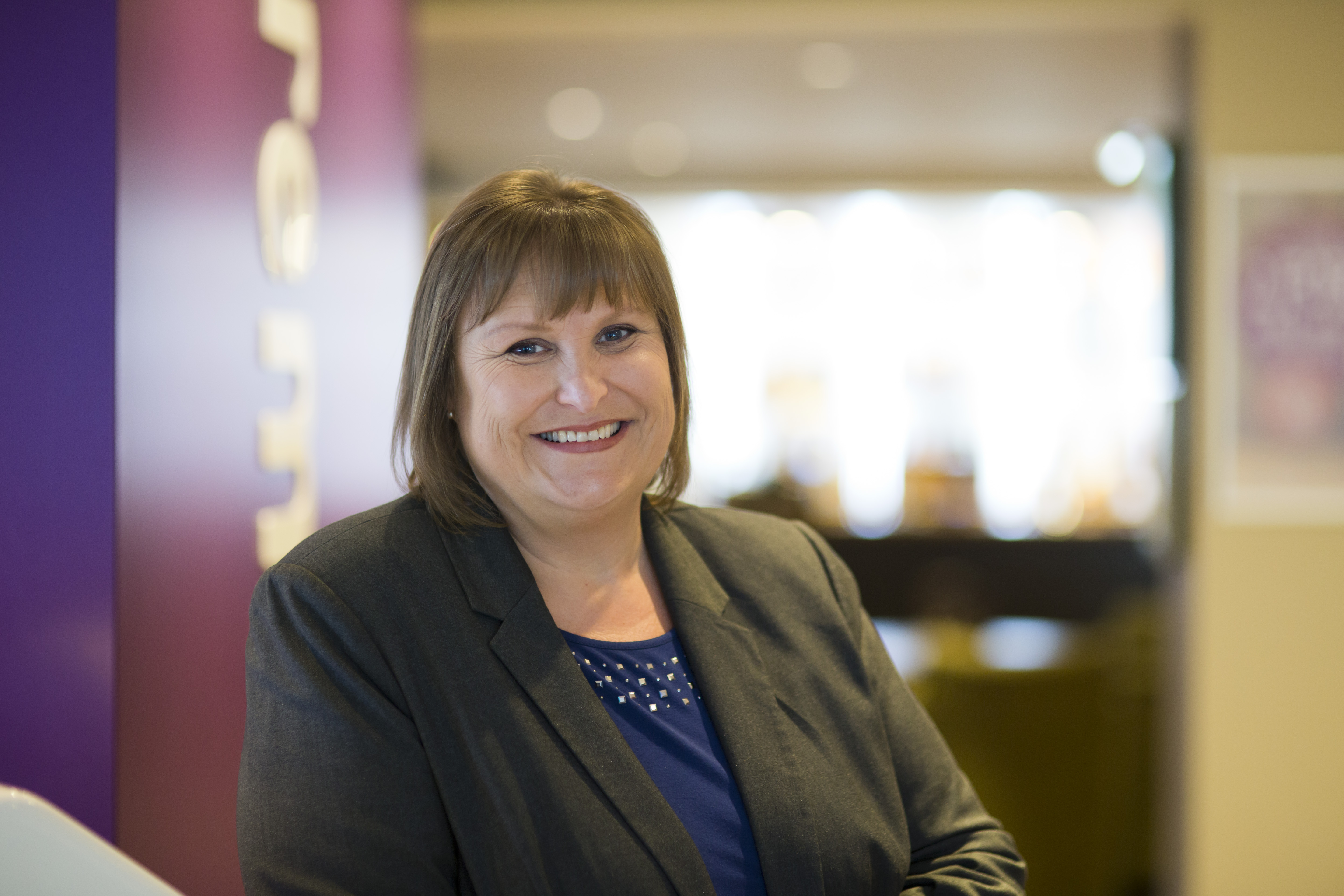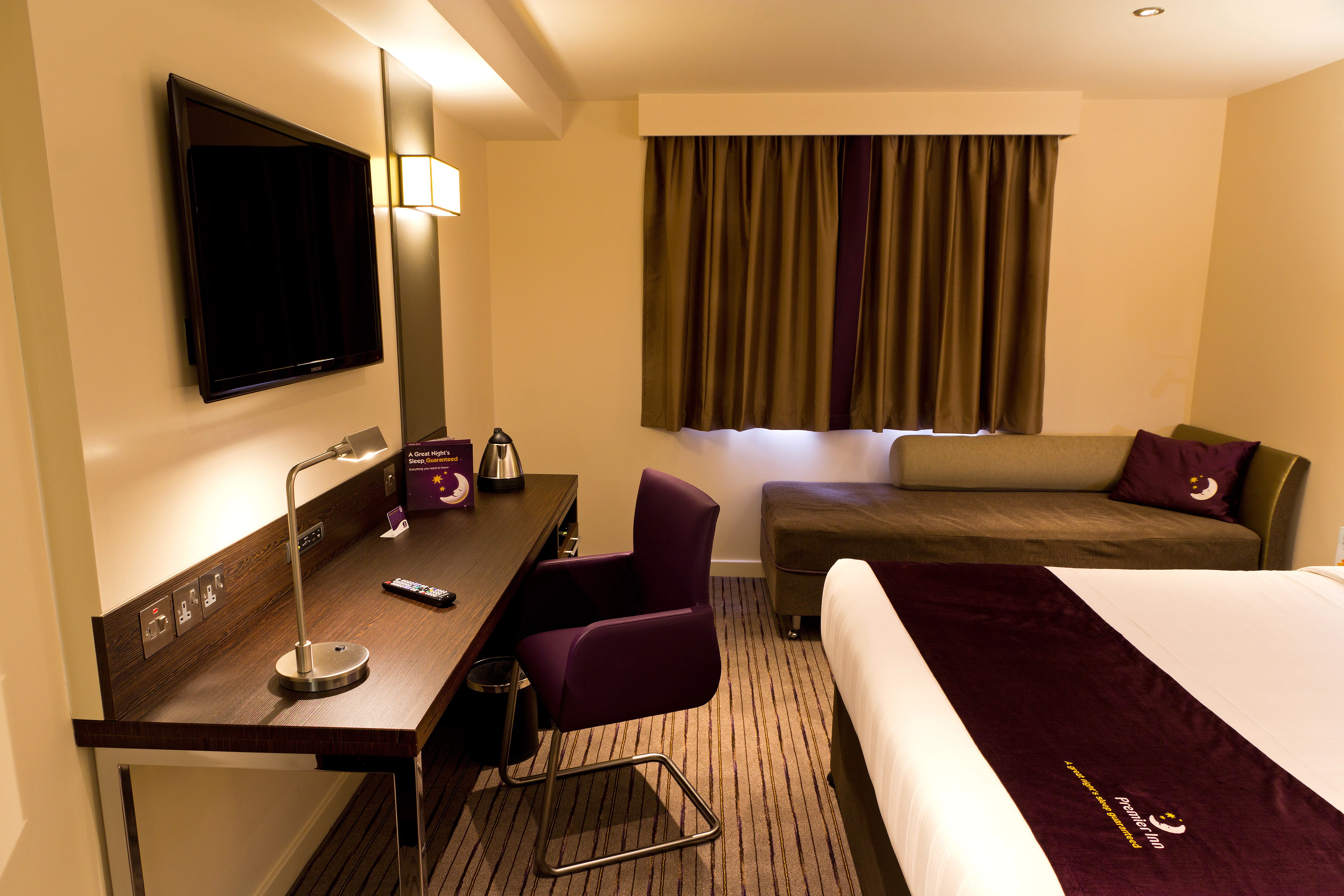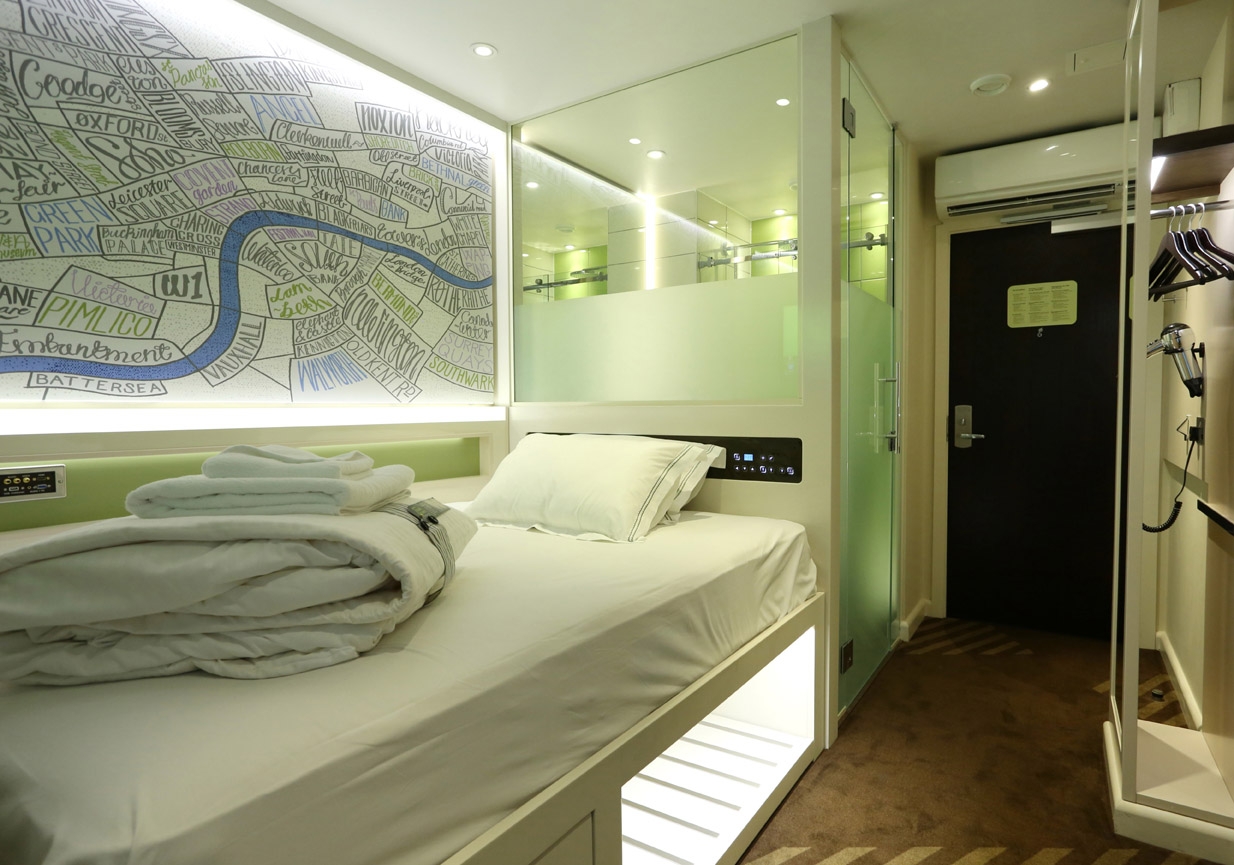
Whitbread has a history that stretches back to 1742 when its core business wasn't hotels or coffee, rather, beer. Centuries later, Whitbread, headquartered in Houghton Regis, UK, operates the largest budget hotel chain in the UK, a coffee chain that rivals Starbucks and well-know restaurant brands. Leading the company today is Alison Brittain, who became CEO of Whitbread in January 2016. She joined Whitbread from Lloyds Banking Group, where she was head of their retail division. Brittain, in fact, is one of only seven female CEOs at a FTSE 100 company in Britain.
In Premier Inn, Brittain leads a brand with more than 700 hotels and 60,000 rooms, making it the UK's largest hotel chain. It also has locations in Asia-Pacific and the Middle East. (Brittain famously stays at Premier Inns when she is on the road, even though her base salary would easily allow her to stay at any number of luxury properties.)
According to Whitbread's website, the target is to have 85,000 rooms by 2020. Premier Inn also has a younger, sibling brand in Hub by Premier Inn, a collection of properties that are high-design, low on cost and put a premium on use of space (think compact, but cleverly designed with loads of technology; some rooms don't even have a window). It currently only has six hotels open (five in London, one in Edinburgh), but has set a target of 3,500 rooms by 2020. Rates are from £69.
Brittain will be centerstage at the International Hotel Investment Forum (IHIF), March 6-8, at the InterContinental Berlin. She will discuss Premier Inn within the framework of the broader industry and global community, in discussion with CBRE Hotels' Michael Hirst. Ahead of IHIF, we caught up with Brittain to discuss trends in the hospitality industry, volatility in Europe, navigating distribution touch points and overall goals for the company.
1. 2016 had so many storylines within the hotel industry. In your estimation, what was the biggest of them and how or will it carry over into 2017?
The standout story in 2016 must surely be the acquisition of Starwood Hotels & Resorts by Marriott International. This was a mega-merger that dwarfed all previous industry consolidation and is set to change the global hotel landscape dramatically. The $13-billion merger creates the world’s largest hotel company. In the months and years ahead, as the complex integration process unfurls, the implications for customers, corporate buyers, bricks-and-mortar competition and their online counterparts will unfold. I think we can expect further consolidation as competitors look to avoid losing market share to this new giant of the hotel industry.

2. Europe had a volatile year: Brexit, referendum in Italy and terror attacks, the latest in Berlin. With your operations based in the UK, you have a primary vantage point of things. How would you describe the hotel operating environment in Europe and how have these political and social issues impacted it?
The hotel industry can be a good yardstick by which to measure peoples’ reaction to seismic and shocking events as the normal human response to any form of threat is to stay put in a familiar and safe place. We saw exactly this reaction after the Paris attacks when the effect rippled across other European cities and room bookings dived in the immediate aftermath. Sadly, the threat of terrorism on the hotel operating environment has become all too familiar. Brexit added to a climate of uncertainty and worry across Europe, although its impact on the UK’s hotel industry is a bit of a curate’s egg. On the one hand, a more expensive Euro and cheaper pound have added to the rise of the staycation as well as attracting more overseas visitors to this country. On the other hand, businesses are operating more cautiously and with more cost focus.
3. The hospitality industry operates in this mutable globally connected world—constantly disrupted from the likes of OTAs, home-sharing and whimsical customers. Taking all that in, how has it all fundamentally changed the business of hotels and, further, what does the hotel or brand of the future look like?
The growth of the OTAs and sharing platforms such as Airbnb has revolutionised the customer experience of staying away from home, from the moment they start searching online to the moment they walk into their room. The flood of new places for customers to stay and plethora of ways for them to book can be a scary thought for traditional hoteliers but the change is inescapable and fast paced! On the positive side, it’s opened up new markets. Our own research found that half the people booking an Airbnb room wouldn’t have stayed in a hotel anyway and with disruption comes challenge and opportunity. The customer now has so much choice that to get them to choose you means your brand proposition has to be compelling and consistent. At Premier Inn, that means a friendly welcome, a quality experience and tremendous value for money across 65,000 rooms and that is not something any sharing platform can promise.

4. Premier Inn is the UK’s largest hotel chain. What are the goals for 2017, how does the overall budget space look like from an operating standpoint and is there every any discussion of taking the Premier Inn brand over the pond or further into Asia?
Last year, I laid out a three-point plan to build a bigger and better Whitbread by growing and innovating in our core UK businesses of Premier Inn and Costa; focusing on our strengths to grow internationally; and building the capability to support our future growth. For Premier Inn, that means opening hundreds more hotels as we reach our 85,000 rooms 2020 target and we have a line of sight to over 100,000 rooms in the years beyond. Coupled with these ambitious growth plans, we will be introducing exciting new digital and product innovations to enrich the customer experience. On the international front, I can definitively say we have no plans to cross the pond, but we will focus on our successful JV partnership with Emirates in the Middle East and on building the Premier Inn brand in Germany, where we currently have one hotel in Frankfurt and a further five sites in the pipeline.
5. Whitbread is such a multi-disciplined company. How does that affect your style of leadership and what types of synergies are available across the portfolio of the business?
With multiple brands operating in multiple territories and ambitious plans to develop our key propositions, it is essential that we build the infrastructure and capability to support our long-term growth. This is the third leg of my three-point plan and is essentially about ensuring we have the right leadership, resources and assets to support our growth. That means having the technology infrastructure that enables us to meet customer needs and changing expectations and using our scale across all the businesses to be as efficient as possible. This will enable us to mitigate cost pressures and continue to fund our growth and innovation plans, at the same time as building the organisation and culture that creates shared value opportunities across the group.
6. Why do you come to a large hospitality investment-focused conference like IHIF and what do you look to walk away with?
As a relative newcomer to the hotel business for me, attending this event presents a great opportunity to meet with the key global players and debate the big industry subjects. I’m very much looking forward to experiencing my first IHIF conference.
IHIF is March 6-8 at the InterContinental Berlin. For more information, visit www.ihif.com.
